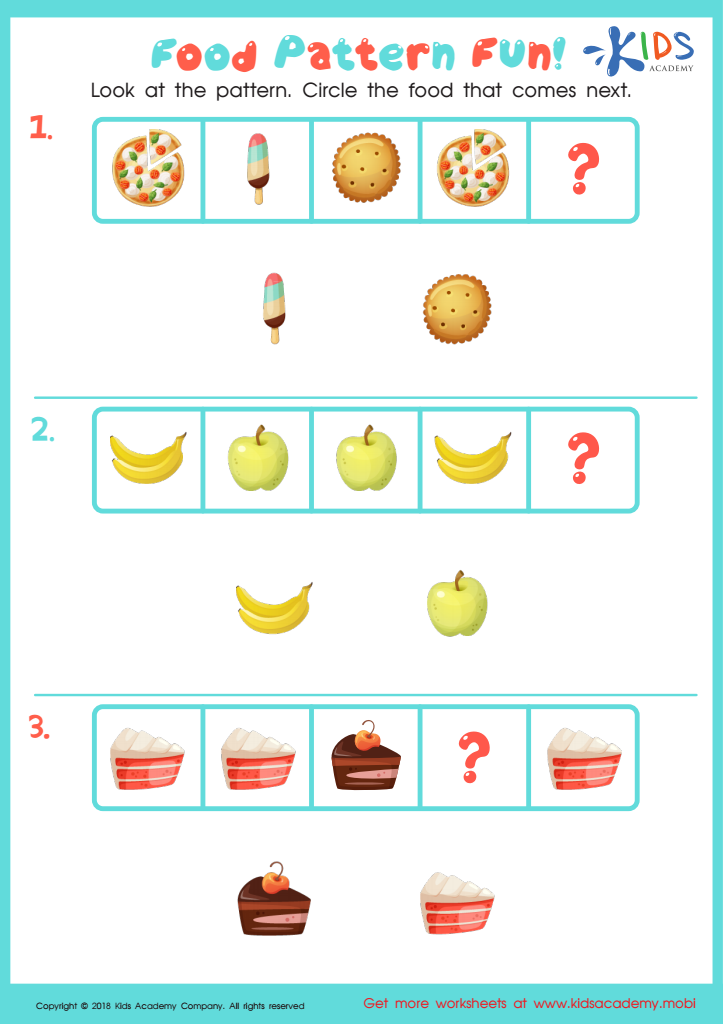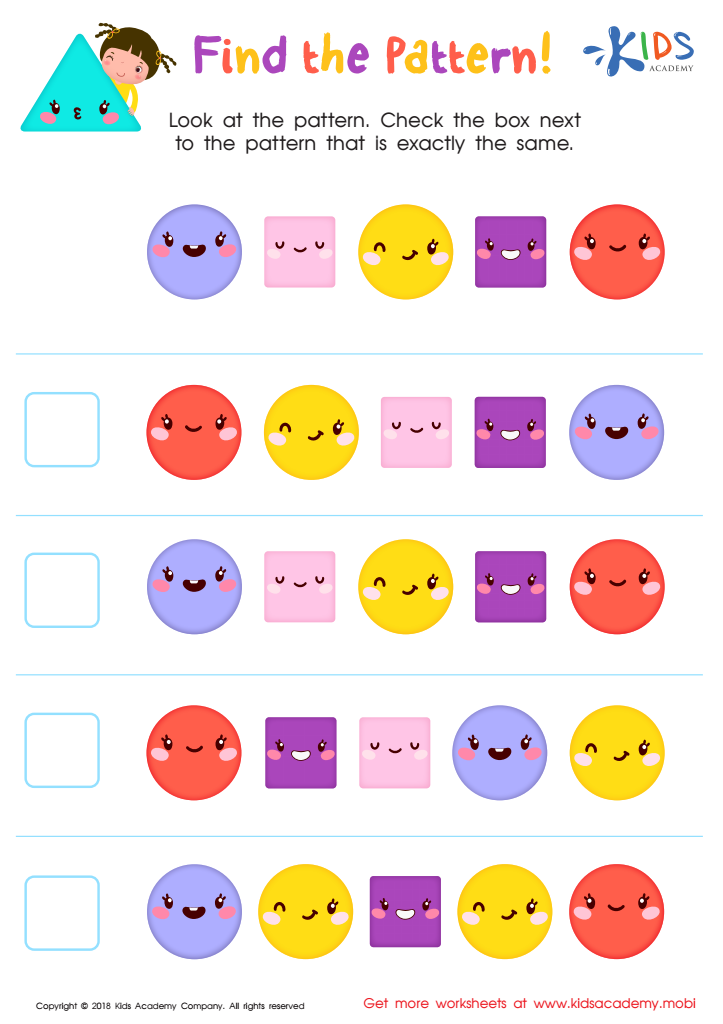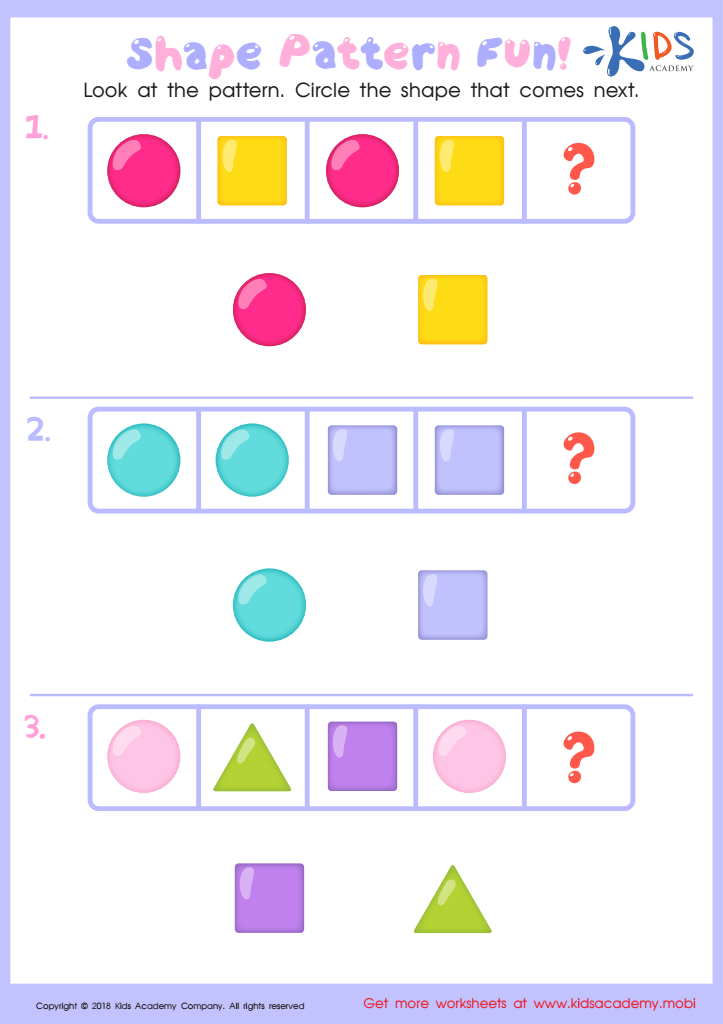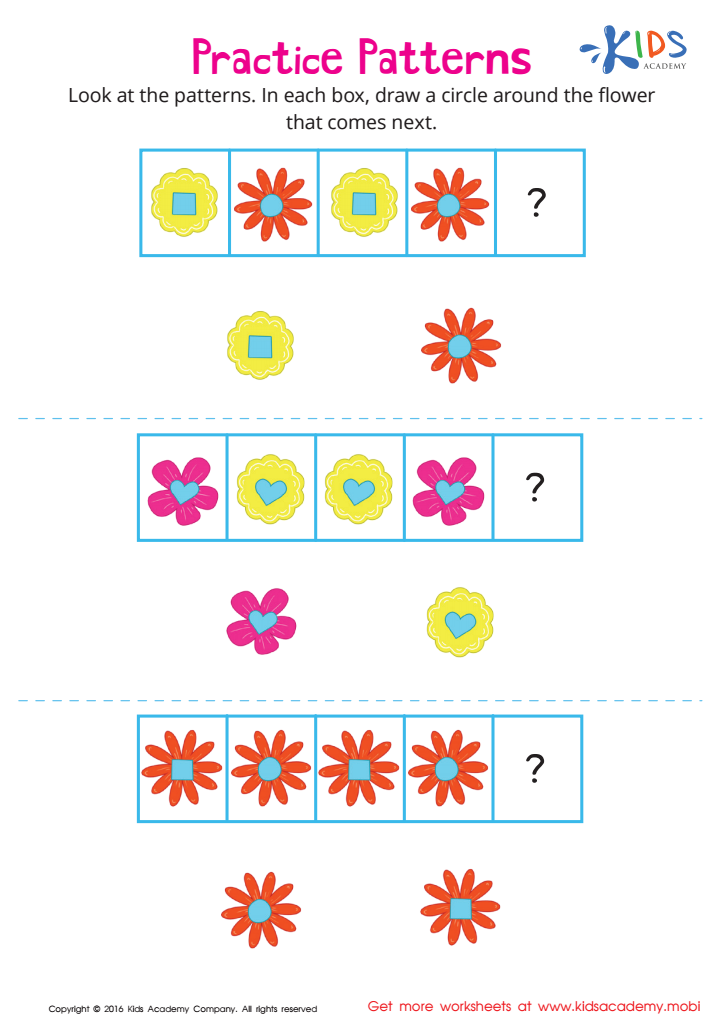Pattern recognition Normal Matching Worksheets for Ages 5-6
6 filtered results
-
From - To
Our Pattern Recognition Normal Matching Worksheets for Ages 5-6 offer engaging activities that help young learners develop critical thinking and problem-solving skills through fun and interactive exercises. These expertly designed worksheets focus on enhancing cognitive abilities by encouraging children to identify, analyze, and complete patterns. Tailored specifically for the 5-6 age group, each worksheet presents colorful patterns and shapes to spark curiosity and retention. Your little one will love the rewarding challenge of mastering patterns, setting a strong foundation in math and logical reasoning. Boost your child’s learning journey with our dynamic and educational pattern recognition worksheets!


Food Pattern Fun Worksheet


Find the Pattern Worksheet


Make the Same Pattern Worksheet


Logic Game Sorting Worksheet


Shape Pattern Fun Worksheet
Pattern recognition and normal matching are vital skills for children aged 5-6 because they form the foundation for cognitive development, early literacy, and numeracy skills. At this age, children's brains are particularly receptive to learning, and creating experiences that boost pattern recognition can aid in more complex thought processes later on. Through patterns, children learn to predict and understand the world around them, enhancing their problem-solving skills and logical thinking.
Parents and teachers should engage children in activities like matching games, puzzles, and sequences, as these help develop the brain's ability to detect similarities and differences. When children recognize patterns, they are essentially learning how to organize and make sense of information, which is critical for reading, writing, and arithmetic. For example, recognizing patterns in letters contributes to word formation and reading fluency, while understanding numerical patterns aids in basic arithmetic skills.
Furthermore, pattern recognition helps with everyday tasks such as following routines and instructions, which increases a child's confidence and independence. Paying attention to this aspect of development not only enriches the child's immediate learning experiences but also sets the stage for academic success and lifelong learning capabilities. Therefore, valuing and nurturing these skills is essential for children's comprehensive development.
 Assign to My Students
Assign to My Students
















